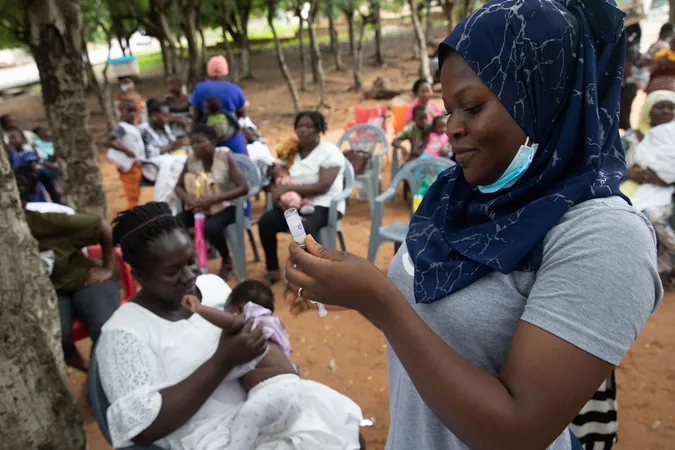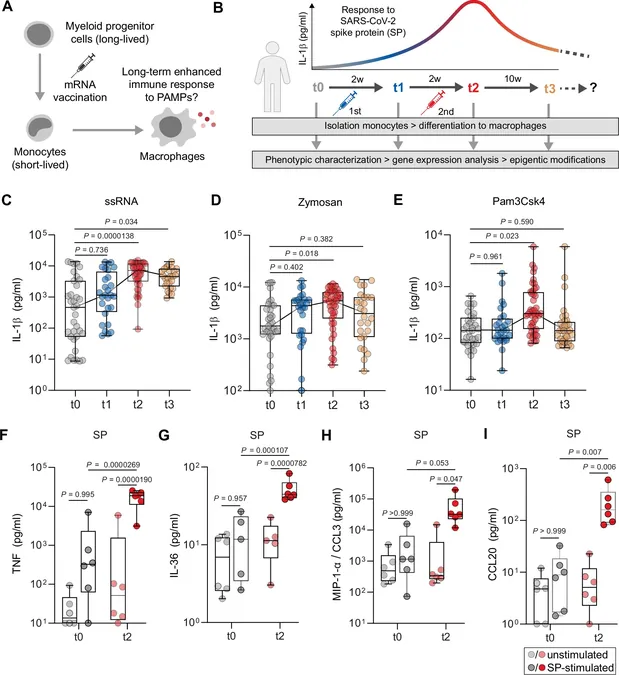
The Future of Vaccination: Next-Generation Coronavirus Vaccines That Could Change Everything!
2025-03-25
Author: John Tan
The Future of Vaccination: Next-Generation Coronavirus Vaccines That Could Change Everything!
The COVID-19 pandemic has significantly altered our lives, with vaccines playing a pivotal role in our return to some semblance of normalcy. However, while current vaccines have proven effective in preventing severe illness, they are not foolproof. We still face the challenge that current shots do not guarantee complete protection against infections or prevent the spread of the virus among individuals, requiring regular booster shots to maintain immunity.
Furthermore, present vaccines provide no defense against other coronaviruses that could emerge, including those responsible for the Middle East Respiratory Syndrome (MERS) and seasonal strains that cause common colds. As we move into an uncertain future, the need for improved vaccine technology is urgent.
Understanding the Challenge
SARS-CoV-2 is just one virus in a large and diverse family of coronaviruses, many of which are notorious for their ability to mutate rapidly. This poses an ongoing concern for human health, especially in light of climate change and increased human-wildlife interaction, which may facilitate the spillover of these viruses to humans. Dr. Nadia Cohen from the Coalition for Epidemic Preparedness Innovations (CEPI) stresses the importance of continued investment into coronavirus research and development to stay ahead of emerging diseases.
Emerging Innovations in Vaccine Technology
The exciting news is that next-generation coronavirus vaccines are in the pipeline, promising to offer broader, stronger, and more durable protection against multiple pathogens. Here’s a deep dive into the innovations poised to revolutionize our approach to vaccination:
Mucosal Vaccines: The First Line of Defense
Traditional vaccines generally activate immune responses in the bloodstream, but mucosal vaccines specifically target immune cells in mucosal tissues like the nose, mouth, lungs, and intestines. By stimulating the body's first line of defense against respiratory viruses, these vaccines have the potential to significantly reduce transmission, according to experts like Prof. John Tregoning of Imperial College London. Alternative delivery methods including nasal sprays and oral vaccines are being explored, with some nasal COVID-19 vaccine candidates entering late-stage trials.
Broadly Protective Vaccines: A Comprehensive Approach
Experts acknowledge the difficulty of creating a universal 'pan-coronavirus' vaccine due to the vast genetic diversity within the coronavirus family. However, vaccines that target specific groups, such as sarbecoviruses—which include SARS-CoV-2—are already in development. Exciting prospects exist for vaccines that could protect against the entire family of betacoronaviruses, including MERS and common cold strains.
T Cell Vaccines: A Step Beyond Antibodies
Scientists are increasingly focusing on viral proteins common to various coronaviruses, particularly aiming to stimulate T cells—immune cells crucial for attacking infected cells. Unlike antibody responses, T cell responses are more durable, potentially offering long-lasting protection. Researchers like Dr. Leo Swadling are probing which viral components elicit the most potent immune responses.
Mosaic Vaccines: The Future of Vaccine Design
Mosaic vaccines, which combine features from various coronaviruses, represent another innovative approach. These vaccines can present multiple versions of proteins to the immune system simultaneously, potentially invoking a broader immune response that could tackle various viral threats. Early studies in animal models have shown promise in developing robust immune responses.
Moving Forward: Overcoming Challenges
Despite the advances being made, the path to human vaccines is fraught with challenges. Manufacturing complexities and regulatory hurdles must be addressed to bring these innovations to reality. Nevertheless, the current research landscape is promising, giving us hope for a range of new vaccines that could protect against existing and emergent coronaviruses.
Conclusion: The Future Is Bright
As we invest in next-generation coronavirus vaccines, we are not just preparing for potential pandemics but are also fortifying our defenses against a wide array of infectious diseases. The journey towards comprehensive protection is ongoing, but the innovations on the horizon hold great promise for global health security. Stay informed and be ready—our collective future may depend on it!
Don't miss out on the latest developments in vaccine technology! Subscribe for updates on groundbreaking breakthroughs in health and medicine!




 Brasil (PT)
Brasil (PT)
 Canada (EN)
Canada (EN)
 Chile (ES)
Chile (ES)
 Česko (CS)
Česko (CS)
 대한민국 (KO)
대한민국 (KO)
 España (ES)
España (ES)
 France (FR)
France (FR)
 Hong Kong (EN)
Hong Kong (EN)
 Italia (IT)
Italia (IT)
 日本 (JA)
日本 (JA)
 Magyarország (HU)
Magyarország (HU)
 Norge (NO)
Norge (NO)
 Polska (PL)
Polska (PL)
 Schweiz (DE)
Schweiz (DE)
 Singapore (EN)
Singapore (EN)
 Sverige (SV)
Sverige (SV)
 Suomi (FI)
Suomi (FI)
 Türkiye (TR)
Türkiye (TR)
 الإمارات العربية المتحدة (AR)
الإمارات العربية المتحدة (AR)